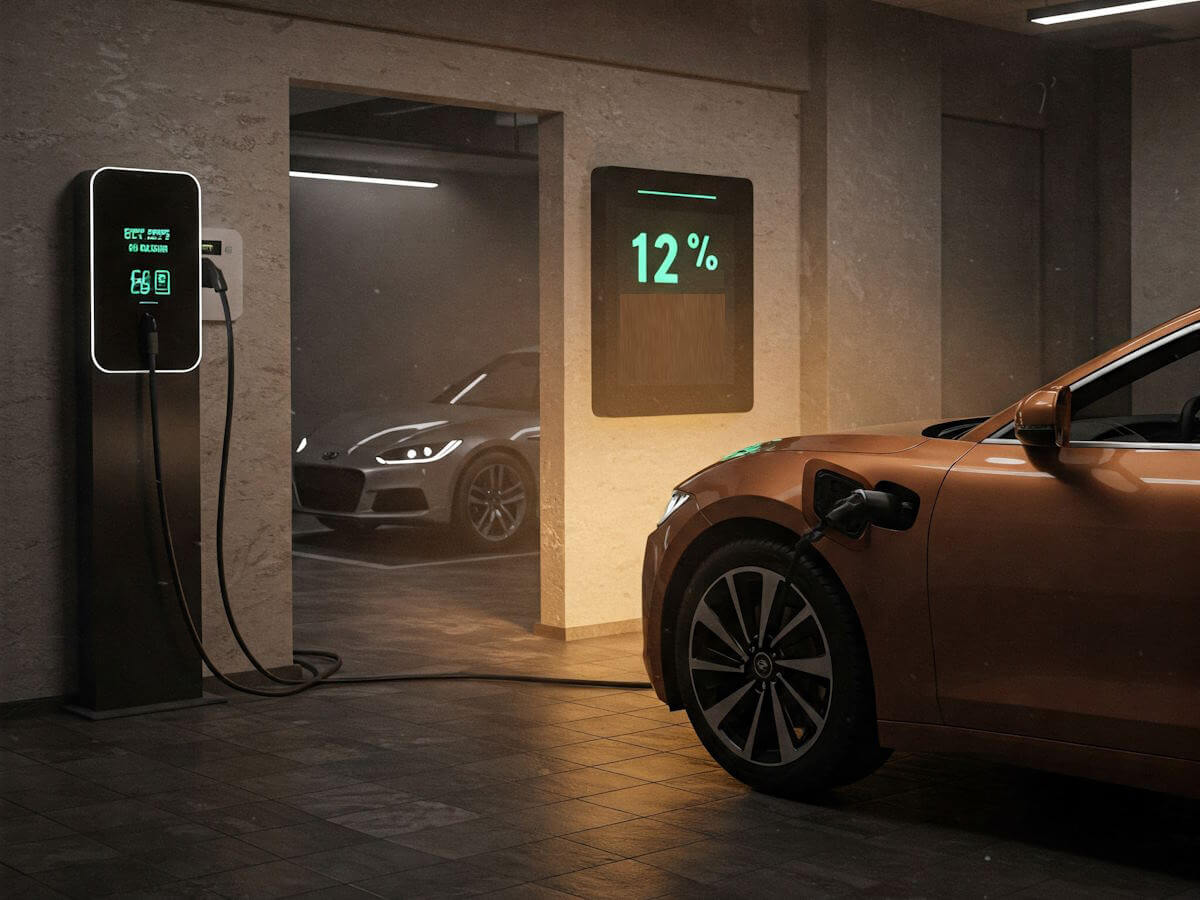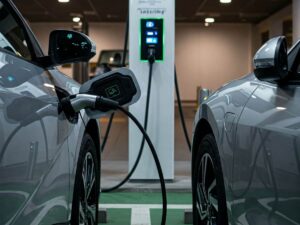The automotive industry has witnessed a significant transformation with the emergence of electric and gasoline cars, each presenting unique features and functionalities. Electric vehicles (EVs) primarily operate on electric energy stored in rechargeable batteries, utilizing electric motors to propel the vehicle. This technology allows for cleaner energy consumption, as electric cars produce zero tailpipe emissions, making them an attractive option for environmentally conscious consumers. In contrast, gasoline cars utilize internal combustion engines that burn fossil fuels to generate power. This process inadvertently contributes to greenhouse gas emissions, which have considerable implications for air quality and climate change.
As the interest in sustainable transportation escalates, both electric and gasoline cars are becoming increasingly prevalent in the automotive market. Factors such as advancements in battery technology, government incentives, and growing awareness of climate-related issues have fueled the rise of electric vehicles. Meanwhile, traditional gasoline cars maintain their popularity due to established infrastructure and consumer familiarity. Understanding the foundational differences between these vehicle types is essential for informed decision-making regarding automotive purchases as well as evaluating their long-term economic implications.
This blog post aims to delve into a comparative analysis of electric and gasoline vehicles, particularly focusing on their cost implications. By examining aspects such as initial purchase prices, operating costs, maintenance requirements, and resale values, the objective is to discern whether electric cars are indeed more economical than their gasoline counterparts. Through this exploration, readers will gain valuable insights needed to navigate the evolving landscape of the automotive market, facilitating a deeper understanding of the long-term benefits and drawbacks inherent in each vehicle type.
Initial Purchase Price Comparison
When assessing the initial purchase costs of electric vehicles (EVs) compared to gasoline vehicles (GVs), several factors come into play. In general, the upfront price of EVs has remained relatively high, primarily due to the cost of the batteries utilized in these models. However, this landscape is changing as advancements in technology and increased production capacities contribute to a gradual reduction in costs. While the average price of a new gasoline vehicle tends to hover around $45,000, recent reports indicate that the average price for new electric cars is similarly positioned, though often on the higher end of the spectrum.
It is important to consider manufacturer incentives which can significantly affect the net cost of ownership. Many governments offer tax credits and rebates for purchasing electric vehicles, which can result in substantial savings. For instance, in the United States, buyers can benefit from federal tax credits of up to $7,500, depending on the model. These incentives can reduce the initial financial burden of purchasing an EV, making them more competitive against traditional gasoline vehicles. Conversely, GVs typically do not benefit from such incentives, which may contribute to a more straightforward purchasing process and potentially lower up-front costs.
Moreover, cost projections for both vehicle types indicate that as the technology matures, we might see even more competitively priced models entering the market. Several manufacturers are investing in electric technology, leading to a broader offering in the EV segment, including affordable options. Financing options also play a critical role in the decision-making process; customers can explore various plans available for both EVs and GVs, including low-interest loans and leasing options. Overall, while the entry price for electric cars can often be more substantial, the financial benefits associated with long-term savings and incentives may make them a worthwhile investment for many consumers.
Fuel and Energy Costs
When comparing electric vehicles (EVs) and gasoline cars, one of the most significant factors to consider is the cost associated with fuel and energy. The average price of electricity varies across regions, but it typically ranges from $0.10 to $0.25 per kilowatt-hour (kWh). Given that electric cars generally consume about 3 to 4 miles per kWh, the cost to drive a mile can be as low as $0.03 to $0.08, depending on local electricity prices.
In comparison, gasoline prices are subject to considerable fluctuation due to market dynamics, geopolitical events, and seasonal shifts. As of recent data, gasoline prices hover around $3.00 to $5.00 per gallon, translating to a per-mile cost of approximately $0.10 to $0.20 for vehicles averaging 20 to 30 miles per gallon. The volatility of gasoline costs can lead to unpredictable fuel expenditures, making budgeting difficult for consumers.
Additionally, the efficiency of electric vehicles plays a crucial role in their fuel cost advantages. EVs convert over 60% of the electrical energy from the grid to power at the wheels, while conventional gasoline vehicles only convert about 20% of the energy stored in gasoline. This higher efficiency means that even if electricity prices rise, EVs often remain a more cost-effective choice for everyday driving.
Considering typical driving patterns, an average EV driver may recharge their vehicle every night, while a gasoline car owner might find themselves at the pump every week or so. This difference not only impacts the frequency of refueling versus recharging but also reflects on time spent, as charging at home can often be more convenient than making trips to a gas station.
In summary, while electricity prices can fluctuate, the overall costs associated with fueling an electric vehicle tend to be significantly lower than those of gasoline cars. This cost-effectiveness, combined with the benefits of reduced maintenance and environmental factors, highlights the potential long-term savings of transitioning to electric mobility.
Maintenance and Repair Costs
The ongoing debate surrounding electric vehicles (EVs) versus gasoline vehicles (GVs) extends beyond initial purchase price to long-term maintenance and repair costs. One of the primary advantages of electric cars is their significantly lower maintenance requirements. EVs have fewer moving parts than traditional gasoline cars, which translates to less wear and tear. For instance, electric motors do not require oil changes, fuel filters, spark plugs, or exhaust systems, all of which are typically necessary for gasoline vehicles. This reduction in components often results in lower maintenance costs over the vehicle’s lifetime.
According to industry data, the average annual maintenance cost for an electric vehicle is around $400, compared to approximately $1,200 for gasoline cars. This considerable disparity arises because GVs face common repairs such as transmission issues, engine problems, and brake system wear. In contrast, EVs tend to require simpler maintenance focused on components such as tires, brakes, and battery checks. Statistics reveal that EVs can have up to 30% fewer reported problems than gasoline models, underscoring their reliability and lower repair frequency.
Moreover, many manufacturers offer extensive warranties on electric vehicles, often covering the battery for up to eight years or 100,000 miles. This warranty coverage adds a layer of financial protection for EV owners, potentially saving them from substantial out-of-pocket expenses for battery replacement. Gasoline vehicles, while having their own warranties, do not typically offer the same coverage for key components as electric cars do. In addition, the growing network of dealerships and service centers specializing in electric vehicle maintenance further aids in reducing repair costs, as many aspects remain consistent among different models.
In essence, the overall lower maintenance and repair costs associated with electric vehicles make them more financially appealing in the long term compared to gasoline-powered cars. As consumers continue to weigh their options, understanding these differences will be critical in making an informed decision.
Tax Credits and Incentives for Electric Cars
The adoption of electric cars has been significantly encouraged through a variety of government incentives and tax credits. In many countries, prospective electric vehicle (EV) buyers can benefit from substantial financial assistance aimed at making these eco-friendly alternatives more affordable. For instance, in the United States, the federal government currently offers a tax credit that can reach up to $7,500 for qualifying electric vehicle purchases. This incentive is particularly beneficial, as it effectively reduces the upfront cost of acquiring an electric car, making it more competitive with traditional gasoline vehicles.
In addition to federal tax credits, individual states and local governments often provide their own incentives. These can include additional tax rebates, grants, and exemptions from sales tax, all designed to further alleviate the financial burden of transitioning to electric vehicles. Some regions also offer substantial rebates for specific models or for low-income consumers, enhancing access to electric cars across different demographics. Furthermore, utility companies may offer incentives, such as reduced electricity rates for EV charging, adding to the overall savings for electric vehicle owners.
Conversely, incentives for gasoline cars are generally limited in comparison. While certain regions occasionally provide subsidies for fuel-efficient vehicles, these tend to be less generous than the incentives available for electric vehicles. Consequently, buyers of gasoline vehicles do not enjoy the same level of financial support which is prevalent for electric car purchasers. The contrast between the incentives for electric and gasoline vehicles highlights the broader governmental push towards sustainability and reduced carbon emissions within the transportation sector.
Depreciation Rates of Electric vs. Gasoline Cars
The depreciation rates of electric vehicles (EVs) and gasoline vehicles (GVs) are critical factors that affect the long-term cost of ownership and overall investment value. Historically, both electric and gasoline vehicles experience depreciation, but the rates vary significantly based on multiple factors, including market demand, technological advancements, and buyer perceptions. Recent data suggests that electric vehicles may depreciate at a different rate compared to their gasoline counterparts, which can be both advantageous and disadvantageous for potential buyers.
Electric vehicles have historically experienced steeper initial depreciation compared to traditional gasoline vehicles. This can be attributed to several factors, including the rapid advancement of EV technology, which can quickly render older models less desirable. Furthermore, the tax incentives and rebates offered by governments can affect the resale value of electric cars. Once these incentives expire, the perceived value of used EVs tends to drop more sharply, especially in the early years following their purchase.
On the other hand, gasoline vehicles typically have a more stable depreciation curve, as their technology does not evolve as rapidly as that of electric vehicles. Many buyers still favor gasoline vehicles due to their established infrastructure, ease of refueling, and familiar performance characteristics. Additionally, gasoline cars may hold their value better in markets where charging infrastructure for electric vehicles is limited or where consumer concerns about range anxiety persist.
Another significant factor affecting depreciation is the battery life of electric vehicles. Battery replacement can be costly, leading potential buyers to factor this into their purchasing decisions, affecting resale values over time. As electric vehicle technology improves and the market expands, the depreciation rates may shift, ultimately making EVs a more attractive financial decision for buyers. Understanding these trends and factors is crucial for anyone considering the investment in either type of vehicle.
Long-Term Cost Analysis and Break-Even Point
When considering the long-term costs associated with electric and gasoline vehicles, a comprehensive analysis of the total cost of ownership (TCO) is imperative. The TCO encompasses various factors, including the vehicle’s purchase price, fuel costs, maintenance, insurance, taxes, and depreciation. By diligently examining these elements, consumers can make informed decisions regarding their vehicle purchases and identify the break-even point at which electric vehicles (EVs) become more economical than their gasoline counterparts.
The initial purchase price of electric cars often presents a higher upfront investment compared to traditional gasoline vehicles. However, this price differential can be offset over time by analyzing fuel savings and maintenance costs. Electric cars typically benefit from lower fuel costs due to the significantly lower price of electricity in comparison to gasoline. Moreover, EVs generally require less maintenance, as they possess fewer moving parts and do not require oil changes. This translates into substantial savings over the lifespan of the vehicle.
Another critical aspect of the long-term cost analysis is depreciation. Leasing or purchasing an electric vehicle often results in a lower depreciation rate due to increasing demand and technological advancements. It is essential to combine these factors when calculating the break-even point, which represents the juncture at which the cumulative savings from fuel and maintenance for an electric vehicle surpass the additional costs incurred during its purchase and ownership.
Various studies suggest that, after an average period of approximately five to seven years of ownership, many electric cars may begin to yield significant savings compared to gasoline vehicles. This timeframe may vary depending on regional electricity prices, gasoline prices, and vehicle-specific costs. Therefore, undertaking a long-term cost analysis is crucial for potential buyers evaluating the economic viability of electric versus gasoline cars.
Environmental Cost Considerations
The choice between electric cars and gasoline vehicles extends beyond mere financial considerations; it encompasses significant environmental implications as well. Electric vehicles (EVs) are frequently lauded for their potential to reduce the carbon footprint compared to traditional gasoline vehicles. While the manufacturing process of electric cars, particularly in battery production, can result in higher initial emissions, the overall lifecycle emissions tend to favor EVs. This advantage is primarily due to the fact that electric cars can be powered by renewable energy sources, substantially diminishing their operational carbon footprint.
Conversely, gasoline cars emit carbon dioxide (CO2) and other greenhouse gases throughout their operational life through the combustion of fossil fuels. The air quality impacts of gasoline vehicles are significant, contributing to pollutants such as nitrogen oxides (NOx) and particulate matter (PM), which have been linked to respiratory ailments and other health issues. This ongoing emission of harmful pollutants poses a societal cost that extends beyond the individual vehicle owner, affecting public health and contributing to climate change.
As consumers become more ecologically conscious, the air quality improvement tied to electric vehicles increasingly sways their purchasing decisions. The transition to electric mobility can enhance urban air quality, yielding long-term health benefits and fostering more sustainable communities. The potential reduction in public health expenditures related to air pollution also adds a financial dimension to the environmental perspective. Consequently, while electric cars might carry higher upfront costs, the associated decreases in pollution and improvements in public health may render them a more cost-effective option in the broader context of environmental sustainability.
Conclusion: Making the Right Choice
In evaluating whether electric cars are truly cheaper than gasoline cars, several key factors emerge that consumers should consider. Initially, it is essential to recognize the differences in operating costs between these two types of vehicles. Electric cars generally exhibit lower fuel expenses, thanks to the cost-effectiveness of electricity compared to gasoline prices. Furthermore, the maintenance costs for electric vehicles tend to be lower since they have fewer moving parts and do not require oil changes. Such factors could contribute significantly to the long-term financial benefits associated with electric cars.
However, the initial purchase price of electric vehicles often exceeds that of their gasoline counterparts. This upfront investment can be a substantial barrier for many potential buyers. It is important to take into account various incentives and tax credits offered for electric car purchases, which may alleviate some of the financial burden. Additionally, state-specific rebates and the availability of charging infrastructure further complicate the decision-making process.
When making the choice between electric and gasoline vehicles, consumers should also evaluate their individual driving patterns. For those who typically drive short distances or have a reliable place to charge their vehicles at home or work, electric cars can be an excellent option. However, consumers with long commutes or limited access to charging stations may find gasoline cars more practical to satisfy their driving needs.
Ultimately, the decision hinges on personal circumstances, preferences, and driving habits. By weighing these factors carefully, consumers can align their needs with the merits of either electric or gasoline vehicles, leading to a more informed and suitable choice. Thus, while electric cars may present a cheaper option for some, different situations can yield diverse outcomes for individual buyers.




